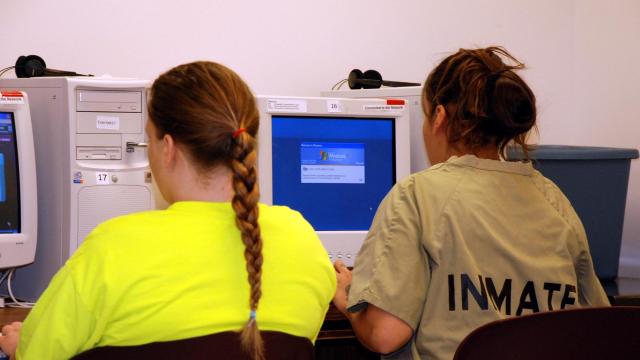Facebook is supporting a bill currently before the California legislature that, if passed, would give children in US juvenile detention facilities and foster care homes the right to internet access.
Photo: AP
The bill, AB 811, would require that kids in the system be allowed to send and receive unopened mail and make and receive confidential phone calls, as well as have access to the internet for education and staying in touch with family members. The Electronic Frontier Foundation is also backing the bill.
If the bill passes, it will be an important step towards expanding internet access for inmates throughout California. The UN has considered internet access a human right since 2011, but prisoners in adult and juvenile detention often aren’t allowed to get online. That makes reentry difficult — imagine trying to integrate back into today’s society after spending years in prison and never interacting with a touchscreen.
“Computer literacy and the ability to communicate with technology are integral to living in today’s society. It has become difficult to imagine staying in touch with one’s family, searching for a job or conducting a number of daily tasks without access to the Internet,” Ann Blackwood, Facebook’s head of public policy for the western states, wrote in a letter supporting the bill.
Facebook became part of the debate over internet access for inmates two years ago, after reporting from the EFF revealed that the company was taking down inmates’ profiles at the request of prisons, even if the profiles didn’t violate any rules.
The company revised its policy after EFF’s reporting, requiring more information from prison officials before removing accounts and generating email receipts of the removals.
“In California and in general with youths, the purpose of incarceration should be rehabilitation,” EFF investigative researcher Dave Maass told Gizmodo. Having the internet will give them access to online courses and help them keep up with their classmates, Maass said. “There are juveniles who are in detention repeatedly, which interrupts their education,” he explained. “They can have a significant setback when they go back to school and find everyone in their class has had computer literacy training or coding training.”
The bill is set to be considered by the California Senate Human Services Committee tomorrow.
